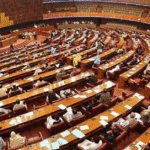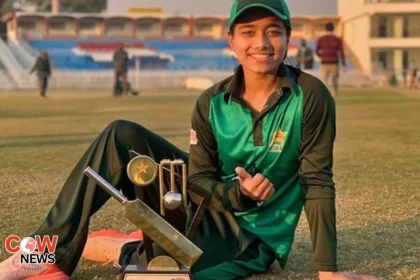Indian singer Lucky Ali, known for his soulful music and evocative lyrics, has recently stirred emotions across social media platforms with his heartfelt announcement. The beloved artist expressed a longing to visit Pakistan, specifically aiming to reconnect with his family and see his mother’s ancestral village of Bhera, located in Sargodha. This revelation not only highlights his personal journey but also illuminates the intricate tapestry of cultural ties that exist between India and Pakistan.
A Deep Family Connection to Bhera
Lucky Ali’s ties to Bhera are deeply rooted in his family’s history. His mother, Madhu Kumari, was born Mahliqa in this small village, which has a rich cultural and historical background. Madhu was the younger sister of the iconic Indian actress Meena Kumari, a figure whose legacy continues to influence Indian cinema today. Born to Ali Bakhsh and Iqbal Begum, Madhu’s upbringing in Bhera shaped her artistic sensibilities, which she later passed on to her children.
The relationship between Madhu and Meena Kumari was particularly significant. Their bond was not just familial but also artistic, as both navigated the complexities of fame and identity in the Indian film industry. When Ali Bakhsh, a tennis coach, began giving lessons to Meena Kumari, it marked the intersection of their lives, leading to the eventual marriage that would tie the families together even more.
Growing up, Lucky Ali often heard stories about his mother’s life in Bhera and the vibrant culture that permeated the village. The tales of his mother’s childhood and her family’s artistic legacy sparked his curiosity, creating a strong desire to visit and experience his roots firsthand.
In a recent tweet, Ali articulated his feelings, stating, “Hoping to get a visit visa to Pakistan to visit my relatives and see my mother’s ancestral village Bhera.” This simple yet profound message resonated deeply with many, prompting responses that showcased a yearning for connection beyond borders.
Warm Reception from Pakistanis
Following Ali’s tweet, the response from Pakistani social media users was overwhelmingly positive. Many residents of Bhera and other areas across Pakistan welcomed his intention with open arms. The outpouring of warmth and hospitality was evident, as numerous individuals extended invitations for him to stay in their homes during his visit. This reaction highlighted a sense of pride among Pakistanis regarding their cultural heritage and a willingness to share it with someone of Lucky Ali’s stature.
Comments poured in on social media, with many expressing joy at the prospect of welcoming a prominent figure like Ali. “We would love to have you here in Bhera! Your mother’s legacy is a part of our history,” one user wrote, encapsulating the sentiment of many who saw this as an opportunity to honor the shared cultural connections.
This reception speaks volumes about the power of music and the arts to transcend national boundaries. Lucky Ali’s musical contributions, which blend elements of folk, pop, and traditional Indian music, have garnered him fans across both India and Pakistan. His songs often evoke themes of love, longing, and nostalgia—emotions that resonate universally, regardless of geopolitical divides.
Mixed Reactions from India
While Lucky Ali received an enthusiastic welcome from Pakistanis, his announcement also sparked a different kind of reaction from some of his fans in India. A section of the audience expressed concern and discontent, suggesting that he should remain in Pakistan and not return to India. This backlash reflects the ongoing complexities of Indo-Pak relations, where personal choices can become entangled with nationalistic sentiments.
The mixed reactions highlight a broader discourse within India about identity, belonging, and the implications of engaging with Pakistan. Some voices criticized Ali for his desire to connect with a country that, historically, has had a fraught relationship with India. This sentiment, although a minority, showcases the divisions that still exist in public opinion regarding cross-border ties.
However, many of Ali’s supporters came to his defense, emphasizing the importance of cultural exchange and familial bonds that transcend political boundaries. They highlighted that such interactions could serve as a bridge to foster understanding and tolerance between the two nations.
The Importance of Cultural Ties
Lucky Ali’s desire to visit Pakistan serves as a poignant reminder of the cultural and familial ties that transcend borders. The narratives of shared heritage, mutual respect, and familial connections can play a significant role in bridging gaps between communities that have often found themselves at odds. Ali’s journey to Bhera is not just about personal exploration; it symbolizes a broader quest for understanding and unity amidst division.
In an age where political narratives often dominate the discourse surrounding India and Pakistan, the stories of individuals like Lucky Ali remind us of the shared histories and experiences that bind people together. The ability to connect over music, art, and personal histories can pave the way for dialogue and reconciliation.
Artists have historically played a crucial role in this process, serving as cultural ambassadors who can convey complex emotions and experiences through their work. Lucky Ali’s music, characterized by its deep emotional resonance, has the potential to bridge divides and foster dialogue between two nations that share much in common.
Potential Impact of the Visit
Should Lucky Ali be granted a visa and proceed with his visit, it could have far-reaching implications. His presence in Pakistan would not only celebrate his familial heritage but could also serve as a cultural exchange that emphasizes the importance of unity. Events centered around his visit could bring together artists, musicians, and fans from both sides, creating opportunities for collaboration and understanding.
Furthermore, Ali’s visit could inspire other artists and public figures to engage in cross-border dialogues, promoting cultural exchange initiatives that foster goodwill and respect. As tensions continue to ebb and flow in the political landscape, such initiatives can provide a much-needed counter-narrative, highlighting the positive aspects of cultural connections.
Community Responses and Local Engagement
The prospect of Lucky Ali visiting Bhera has ignited interest and excitement among local communities. Residents are already planning ways to showcase their village’s history and culture, hoping to create a memorable experience for the singer. From organizing traditional welcome ceremonies to arranging performances by local artists, the community is rallying to honor a figure who has deep familial ties to their land.
Local historians and cultural enthusiasts have also expressed interest in sharing the rich heritage of Bhera with Ali. The village is known for its historical significance and cultural landmarks, which could provide a backdrop for engaging conversations about identity and history. In many ways, this visit could be a celebration of shared heritage that transcends political narratives.
The Role of Social Media
Social media has played a pivotal role in amplifying Ali’s message and fostering dialogue between fans and followers on both sides of the border. The viral nature of his tweet has not only brought attention to his desire to visit but has also opened up discussions about cross-cultural relationships and the power of shared stories.
As the online conversation unfolds, it underscores the potential for social media to act as a platform for building bridges rather than walls. The ability for individuals to share their thoughts and experiences in real time has created a space for empathy and understanding, allowing people to connect in ways that traditional media often fails to capture.
Reflections on National Identity
Lucky Ali’s potential visit to Pakistan also prompts deeper reflections on national identity and the ways in which it is constructed. In a world where identities are often defined by borders, Ali’s journey underscores the fluidity of identity and the importance of personal history in shaping one’s sense of belonging.
His mixed heritage and the rich cultural backdrop of his family history highlight the complexities of identity in a multicultural society. As discussions about national identity continue to evolve, narratives like Ali’s remind us that our connections to people and places often transcend political boundaries.
Lucky Ali’s aspiration to visit Pakistan and reconnect with his mother’s ancestral village of Bhera serves as a powerful testament to the enduring connections that exist between individuals across borders. His heartfelt message has elicited a wide range of reactions, highlighting both the warmth of cultural ties and the complexities of national sentiments.
As the discourse around his potential visit unfolds, it presents an opportunity for dialogue, understanding, and celebration of shared heritage. Lucky Ali’s journey is more than a personal quest; it is a reminder of the richness of our interconnected stories and the importance of fostering connections in an increasingly divided world.
#LuckyAli #Bhera #CulturalTies #IndiaPakistanRelations #Music #Heritage #MeenaKumari #VisitPakistan #CulturalUnity #FamilyRoots







